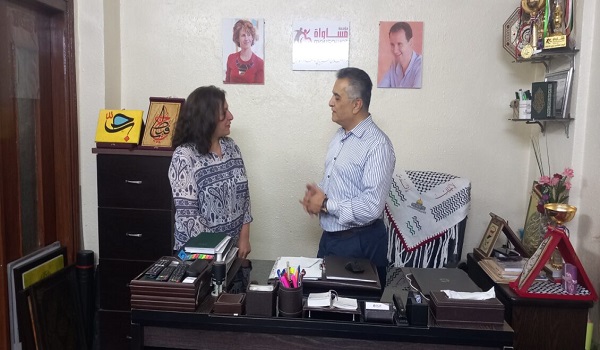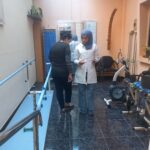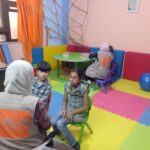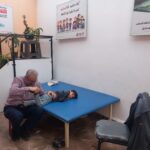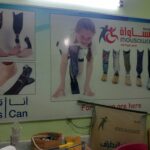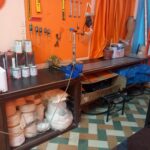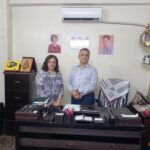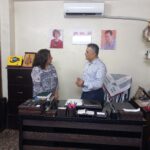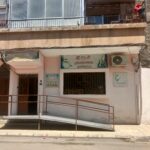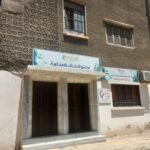A report issued almost four years ago by the World Health Organization on disability rate in Syria revealed that more than 28% of the population needed services for different kinds of disability that resulted from the brutal war that Syria has been exposed to over the past 13 years, while the centers that used to provide assistance to disabled people at that time, were less than 4%. Hence, there was an urgent need for intensive work to provide proper treatment and life-changing services to those people so as to empower them to depend on themselves, Dr. Nidal Yusuf Hammad, a specialist in physical therapy and the Medical and Technical Director of the Damascus-based “Mousawat Foundation for Persons with Disabilities” told Syria Times.
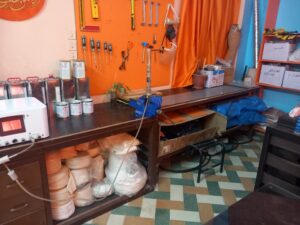 The Foundation was established on October 2nd, 2019, as a center for physical therapy and a factory for producing prosthetics, after obtaining a license from the Ministry of Social Affairs and Labor and the Ministry of Health. It aimed at providing health and social services to persons with disabilities, both civilians and military personnel, Dr. Hammad said, pointing out that the Foundation” was the fruit of cooperation between the government, local community and civil society associations to alleviate the suffering of the Syrian citizens from the war and the difficult living conditions.
The Foundation was established on October 2nd, 2019, as a center for physical therapy and a factory for producing prosthetics, after obtaining a license from the Ministry of Social Affairs and Labor and the Ministry of Health. It aimed at providing health and social services to persons with disabilities, both civilians and military personnel, Dr. Hammad said, pointing out that the Foundation” was the fruit of cooperation between the government, local community and civil society associations to alleviate the suffering of the Syrian citizens from the war and the difficult living conditions.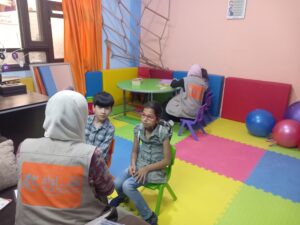 He noted that the foundation also contributes to improving the living conditions of the persons with disabilities and their families through providing training and carrying out small-sized income generating enterprises. The foundation also holds diverse activities, including sport events and summer clubs to persons with disabilities.
He noted that the foundation also contributes to improving the living conditions of the persons with disabilities and their families through providing training and carrying out small-sized income generating enterprises. The foundation also holds diverse activities, including sport events and summer clubs to persons with disabilities.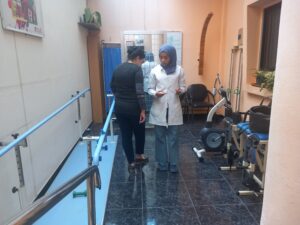 Dr. Hammad indicated that the Foundation has a highly qualified staff, a team of 8 specialists in physical therapy, 3 experts in prosthetics and 7 excelled persons, who all cooperate with each other around the clock as to provide suitable services, pointing out that the Foundation gets support basically from the Ministry of Social Affairs and some charities and international organizations, such as “Mousawat Association, which is a rights-based organization that aims to promote equality and equitable opportunity mainly for persons with disabilities and refugees in Lebanon.
Dr. Hammad indicated that the Foundation has a highly qualified staff, a team of 8 specialists in physical therapy, 3 experts in prosthetics and 7 excelled persons, who all cooperate with each other around the clock as to provide suitable services, pointing out that the Foundation gets support basically from the Ministry of Social Affairs and some charities and international organizations, such as “Mousawat Association, which is a rights-based organization that aims to promote equality and equitable opportunity mainly for persons with disabilities and refugees in Lebanon.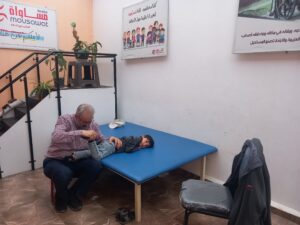 Dr. Hammad cited one of the many success stories achieved by the foundation, saying “a young man with Quadriplegia came to the center, he was frustrated and suffering from psychological stress. He underwent a complete treatment protocol and assessment, until he began to depend on himself with the help of the wheelchair. He took the high school exam and he succeeded with high marks that qualify him to enter the Faculty of Medicine and now, he has the will to continue in the field of surgery”.
Dr. Hammad cited one of the many success stories achieved by the foundation, saying “a young man with Quadriplegia came to the center, he was frustrated and suffering from psychological stress. He underwent a complete treatment protocol and assessment, until he began to depend on himself with the help of the wheelchair. He took the high school exam and he succeeded with high marks that qualify him to enter the Faculty of Medicine and now, he has the will to continue in the field of surgery”.
